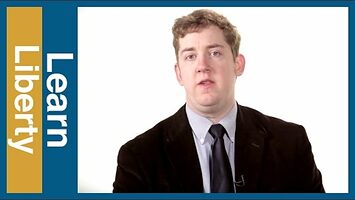Healthcare
Encyclopedia
Health care represents a special area of public policy for libertarians, although not for the reasons typically offered in support of government intervention. In limited circumstances, a substantial number of libertarians support state-sponsored coercion to prevent the spread of infectious diseases. In the absence of violence, theft, tortious injury, fraud, or breach of contract, however, libertarians reject the use of coercion in health and medicine as immoral and counterproductive.
People can do violence to each other by transmitting contagious diseases. Therefore, most libertarians sanction limited government efforts to identify and contain infectious diseases and punish those who infect others intentionally or negligently. They do so cautiously, however. A 2004 survey published in the journal Health Affairs hints at one way such powers could be abused. Amid widespread concern about bioterrorism, roughly equal shares of white and black Americans expressed support for quarantines to contain a serious contagious disease. When subsequently asked whether they would support a compulsory quarantine, where the authorities would have the power to arrest violators, 25% of whites changed their minds, whereas 51% of blacks did, indicating an awareness that these policies would not necessarily be fairly implemented. Just as libertarians advocate limits on government’s ability to pursue criminals generally, they closely circumscribe the use of force to protect public health. For example, an outbreak must pose a serious health threat, there must be no feasible alternative to coercion, and the state must use the least coercive measures available. Libertarians reject government intervention to remedy private health problems, such as obesity, diabetes, or addiction.
There exist more unjustified uses of the state’s coercive power in health and medicine than in nearly any other area. In the United States, governments routinely forbid competent adults from making medical decisions that affect no one but themselves. Libertarians maintain that such laws are unjust and ultimately counterproductive. For example, the government denies patients, including terminally ill patients, the ability to determine their course of treatment. Proponents argue that such laws exist to ensure the safety and effectiveness of medical products. Libertarians argue that those laws cause more morbidity and mortality than they prevent.
Licensing laws restrict entry into the medical professions, dictate what tasks each profession may perform, and deny patients the right to be treated by the practitioner of their choice. Libertarians agree with a quip that Mark Twain delivered before the New York General Assembly in 1901, as reported in The New York Times:
I don’t know that I cared much about these osteopaths until I heard you were going to drive them out of the State; but since I heard this I haven’t been able to sleep.… Now what I contend is that my body is my own, at least I have always so regarded it. If I do harm through my experimenting with it, it is I who suffer, not the State.
Proponents of licensing argue that it enhances the quality of care, but libertarians point to the fact that low-quality care is widespread despite licensing, that licensing does not improve overall quality because it reduces access to care for the poor, and that the chief proponents of licensing are incumbent practitioners who profit by restricting entry. Meanwhile, unregulated markets are extremely likely to develop private quality certification.
Government prohibits the sale of human organs to transplant patients or organ brokers. Proponents of that ban consider it immoral to commodify the human body, but such a ban allows government to assert a property right in the body of every citizen. Further, it makes organs no less valuable a commodity, but merely imposes on them a zero price and consequently creates an artificial shortage that causes thousands of unnecessary deaths in the United States each year.
Governments infringe on the individual’s ability to choose whether to purchase health insurance and what type of insurance to purchase. Targeted tax breaks penalize consumers for purchasing the wrong type of health insurance or no insurance. Libertarians note that these laws require adults to buy coverage they do not want and may even consider immoral. Legislatures enact these laws at the behest of the providers of the covered services, which increases the costs of health insurance and the number of uninsured.
Libertarians further object to the government’s refusal to honor contracts limiting a provider’s liability for malpractice in exchange for reduced-price or free medical care. Proponents of that rule argue that patients harmed by negligent providers might not be able to recover. Opponents say that such rules limit the right of consenting adults to engage in mutually beneficial exchanges that harm no one else and that they reduce access to care among those least able to pay. Finally, regulations of this sort reduce experimentation with malpractice rules that ensure both quality and access.
Government may do the greatest damage to health and personal liberty through its influence over the financing of medical care. Government programs such as Medicare and Medicaid finance nearly half of all medical expenditures in the United States. They devour private health insurance markets and deny adults the ability to choose whether and how to fund their health needs in retirement and how to assist the needy. These programs waste hundreds of billions per year on care that makes patients no healthier or happier. Targeted tax breaks divert even private spending from pursuing high-quality, affordable care and unnecessarily induce millions to become dependent on government. These targeted tax breaks deny workers control over their earnings and their health insurance. They encourage wasteful consumption of medical care and strip workers of their health insurance when they leave a job.
In 1963, Nobel laureate economist Kenneth Arrow wrote that licensure and other features of health care markets can be partially explained by uncertainty about the quality of medical care and the fact that physicians possess more certainty regarding quality than do patients. Many supporters of licensure cite Arrow’s analysis when arguing for government intervention to correct the perceived market failures of imperfect and asymmetric information. With respect to Arrow’s conclusions, however, health economist James C. Robinson has replied,
The most pernicious doctrine in health services research, the greatest impediment to clear thought and successful action, is that health care is different. …
To some within the health care community, the uniqueness doctrine is self-evident and needs no justification. After all, health care is essential to health. That food and shelter are even more vital and seem to be produced without professional licensure, nonprofit organization, compulsory insurance, class action lawsuits, and 133,000 pages of regulatory prescription in the Federal Register does not shake the faith of the orthodox.…
The central proposition of [Arrow’s 1963] article, that health care information is imperfect and asymmetrically distributed, has been seized upon to justify every inefficiency, idiosyncrasy, and interest-serving institution in the health care industry.… It has served to lend the author’s unparalleled reputation to subsequent claims that advertising, optometry, and midwifery are threats to consumer well-being, that nonprofit ownership is natural for hospitals though not for physician practices, that price competition undermines product quality, that antitrust exemptions reduce costs, that consumers cannot compare insurance plans and must yield this function to politicians, that price regulation is effective for pharmaceutical products despite having failed in other applications, that cost-conscious choice is unethical while cost-unconscious choice is a basic human right.…
Libertarians do not dispute that health and medicine present unique challenges, but they argue that noncoercive measures are best able to address these challenges.
Further Readings
Arrow, Kenneth J. “Uncertainty and the Welfare Economics of Medical Care.” American Economic Review 53 no. 5 (December 1963): 941–973.
Cannon, Michael F., Daniel B. Klein, and Alexander Tabarrok. “Do Economists Reach a Conclusion on the Food and Drug Administration?” Econ Journal Watch, forthcoming.
Cannon, Michael F., and Michael D. Tanner. Healthy Competition: What’s Holding Back Health Care and How to Free It. Washington, DC: Cato Institute, 2007.
Conover, Christopher J. “Health Care Regulation: A $169 Billion Hidden Tax.” Cato Institute Policy Analysis 527 (October 4, 2004).
Epstein, Richard A. “Medical Malpractice: The Case for Contract.” American Bar Foundation Research Journal 1 no. 1 (1976): 87–149.
———. Mortal Peril: Our Inalienable Right to Health Care? Reading, MA: Addison-Wesley, 1997.
Hamowy, Ronald. “The Early Development of Medical Licensing Laws in the United States, 1875–1900.” Journal of Libertarian Studies 3 (Spring 1979): 73–119.
———. Government and Public Health in America. Northampton, MA: Edward Elgar Publishing, 2007.
Hyman, David A. Medicare Meets Mephistopheles. Washington, DC: Cato Institute, 2006.
Kling, Arnold. Crisis of Abundance: Rethinking How We Pay for Health Care. Washington, DC: Cato Institute, 2006.
Robinson, James C. “The End of Asymmetric Information.” Journal of Health Politics, Policy and Law 26 no. 5 (October 2001): 1045–1053.
Starr, Paul. The Social Transformation of American Medicine. New York: Basic Books, 1984.







